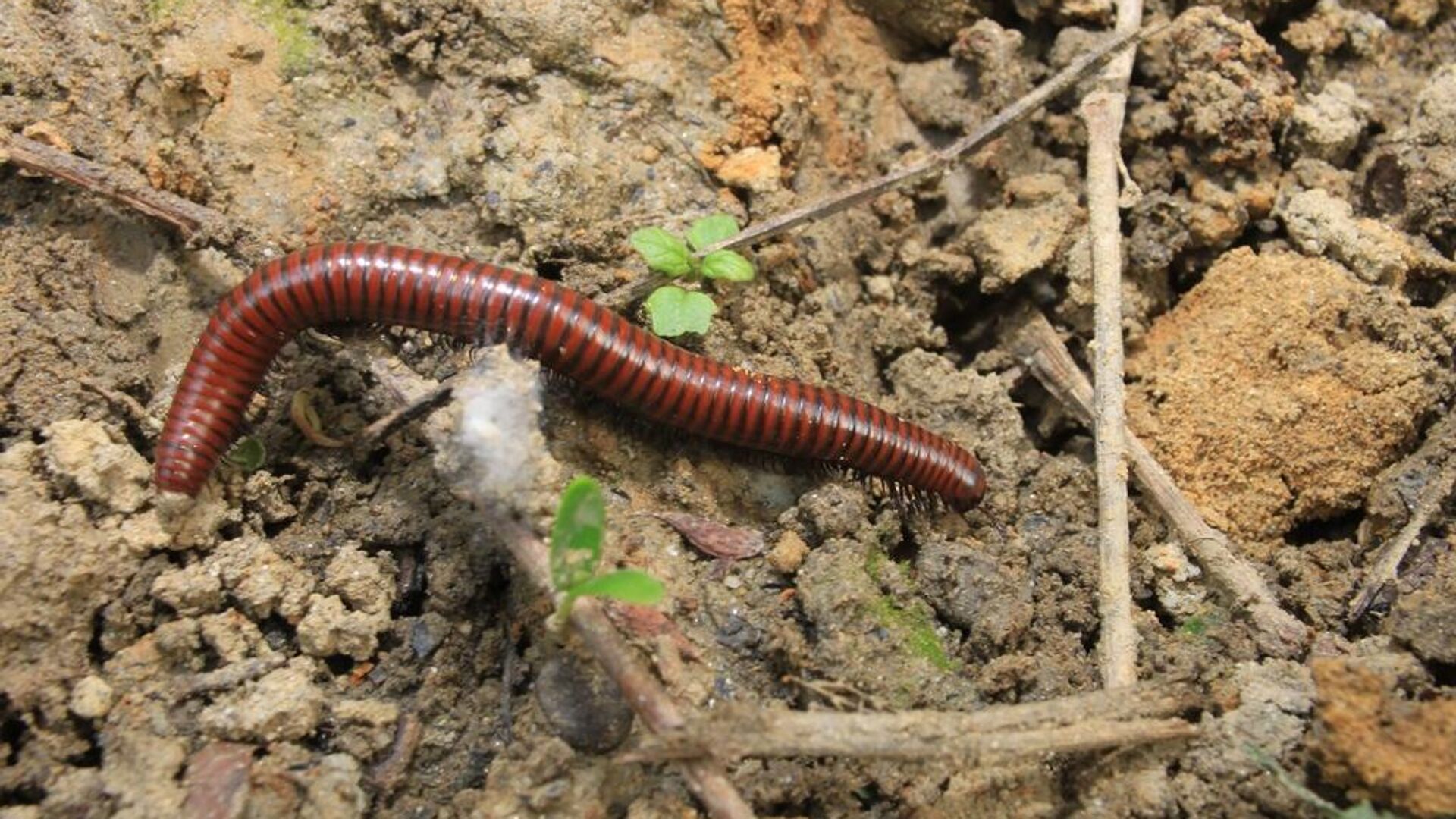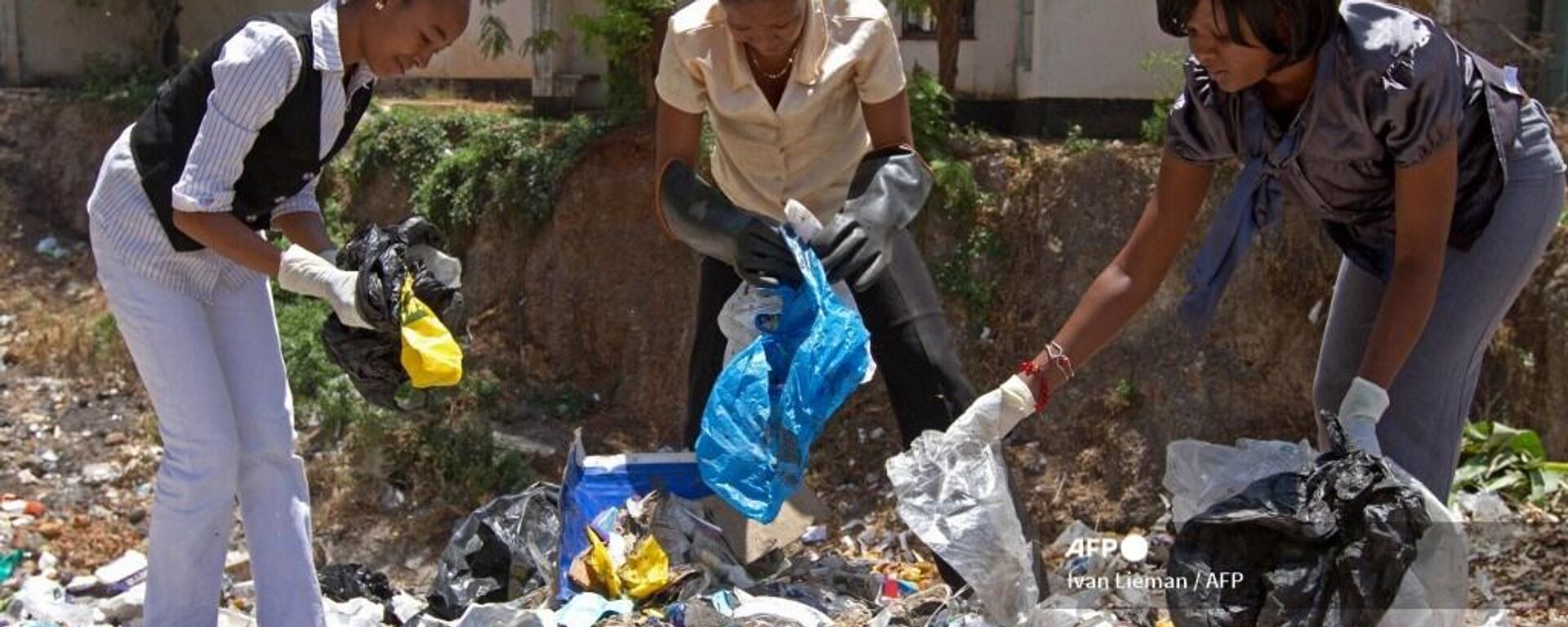https://en.sputniknews.africa/20241112/mealworm-larvae-that-consume-plastic-discovered-in-kenya-research-says-1069195954.html
Mealworm Larvae That Consume Plastic Discovered in Kenya, Research Says
Mealworm Larvae That Consume Plastic Discovered in Kenya, Research Says
Sputnik Africa
In April, Kenya's National Environment Management Authority (NEMA) announced a ban on the use of plastic bags for the collection and disposal of organic waste... 12.11.2024, Sputnik Africa
2024-11-12T16:51+0100
2024-11-12T16:51+0100
2024-11-13T10:05+0100
sub-saharan africa
east africa
kenya
waste
waste dump
environment
climate change
https://cdn1.img.sputniknews.africa/img/07e8/0b/0c/1069195768_0:107:1024:683_1920x0_80_0_0_fd8d383d2870f3276053d9e25a0351ea.jpg
Mealworm larvae that consume plastic have been discovered in Kenya, research that was conducted by scientists of the International Centre of Insect Physiology and Ecology said.The insect can chew through polystyrene, a plastic material, and host bacteria in their guts that help break down the material, the study noted. According to research, the mealworms were able to break down approximately 11.7 percent of the total polystyrene over the trial period. Earlier, Naphtali Obed, founder and CEO of Climrenew, a pollution eradication startup, told Sputnik Africa that the majority of all types of waste from the Global North goes to Africa, which represents the phenomenon of "waste colonialism." He noted that, statistically, about 20% of the world's plastic ends up in Africa and its dumping grounds, and cited a recent study that found that most of the source companies for plastic waste are in the Global North, for instance, Coca-Cola and Unilever.
https://en.sputniknews.africa/20240424/kenya-prohibits-plastic-bags-for-organic-waste-collection-1066209413.html
east africa
kenya
Sputnik Africa
feedback@sputniknews.com
+74956456601
MIA „Rossiya Segodnya“
2024
News
en_EN
Sputnik Africa
feedback@sputniknews.com
+74956456601
MIA „Rossiya Segodnya“
Sputnik Africa
feedback@sputniknews.com
+74956456601
MIA „Rossiya Segodnya“
east africa, kenya, waste, waste dump, environment, climate change
east africa, kenya, waste, waste dump, environment, climate change
Mealworm Larvae That Consume Plastic Discovered in Kenya, Research Says
16:51 12.11.2024 (Updated: 10:05 13.11.2024) In April, Kenya's National Environment Management Authority (NEMA) announced a ban on the use of plastic bags for the collection and disposal of organic waste. The issue of plastic pollution is relevant to Africa, with reports suggesting that enough plastic is thrown away or burned every minute in sub-Saharan Africa to fill a football field.
Mealworm larvae that consume plastic have been discovered in Kenya, research that was conducted by scientists of the International Centre of Insect Physiology and Ecology said.
The insect can chew through polystyrene, a plastic material, and host bacteria in their guts that help break down the material, the study noted. According to research, the mealworms were able to break down approximately 11.7 percent of the total polystyrene over the trial period.
Earlier, Naphtali Obed, founder and CEO of Climrenew, a pollution eradication startup, told
Sputnik Africa that the majority of all types of
waste from the Global North goes to Africa, which represents the phenomenon of "waste colonialism."
He noted that, statistically, about 20% of the world's plastic ends up in Africa and its dumping grounds, and cited a recent study that found that most of the source companies for
plastic waste are in the Global North, for instance, Coca-Cola and Unilever.


